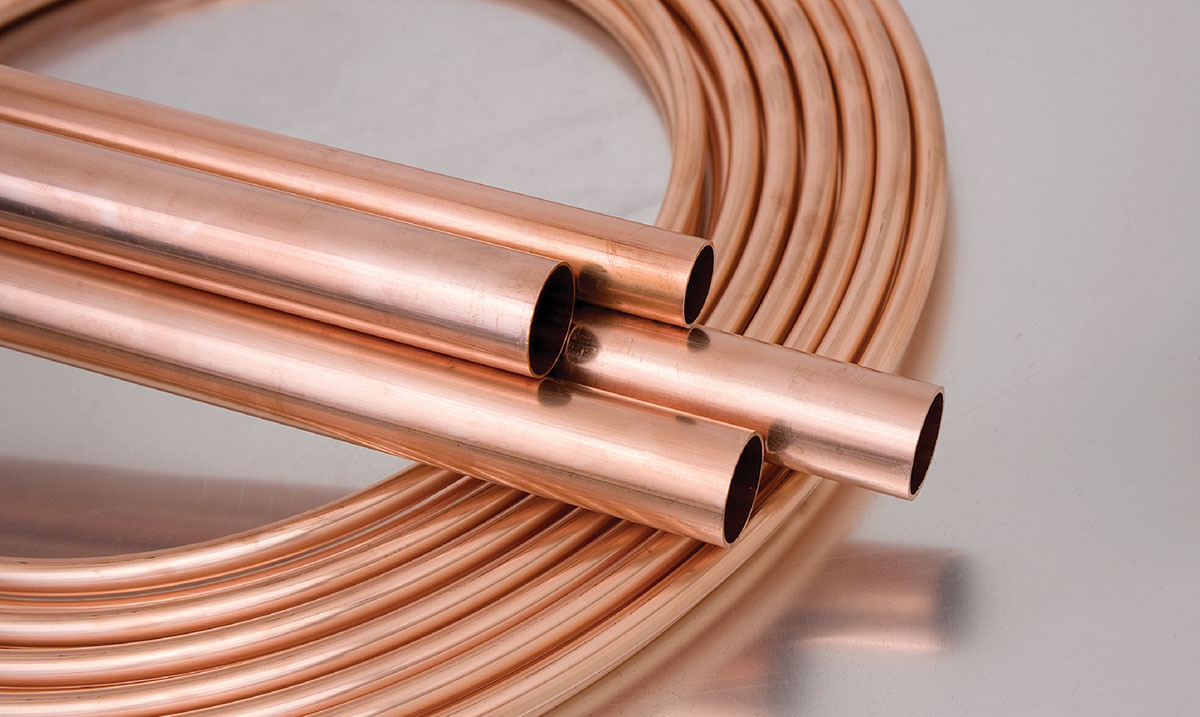The Ultimate Guide to Lasting Dealing With Eco-Friendly Copper Products
Checking Out the Diverse Applications of Copper Products in Modern Industries
From boosting the efficiency of electrical systems to playing a critical role in renewable energy innovations, the versatility of copper is apparent. As markets progressively focus on technology and sustainability, the varied applications of copper warrant a closer examination, particularly regarding their potential effect on future environmental techniques and technological improvements.
Electrical Applications of Copper
Copper is a crucial material in the electrical sector, making up roughly 60% of the overall demand for non-ferrous steels worldwide - Copper Products. Its superior electrical conductivity, which is nearly two times that of light weight aluminum, makes it the preferred selection for a wide variety of electrical applications. From wiring systems in commercial and household buildings to high-voltage power transmission lines, copper makes sure effectiveness and integrity in electrical energy distribution
Along with circuitry, copper is essential to the manufacturing of electrical components such as transformers, electric motors, and generators. These parts leverage copper's thermal conductivity and pliability, important for warm dissipation and reliable performance. Copper's resistance to deterioration improves the lifespan and resilience of electrical systems, making it a cost-efficient service in the lengthy term.
The growth of sustainable energy resources, such as solar and wind power, has better increased the demand for copper in electric applications. As industries shift towards sustainable power options, copper's role comes to be a lot more important. Overall, the convenience and performance attributes of copper solidify its status as a keystone material within the electrical field, driving innovation and performance throughout various applications.
Plumbing and Piping Solutions
In contemporary plumbing systems, the choice of materials dramatically affects both capability and durability. Copper has actually emerged as a preferred option as a result of its special properties, including corrosion resistance and antimicrobial qualities. These qualities make certain that copper piping remains secure and resilient for moving potable water, a vital factor to consider in property and commercial applications.
Among the key benefits of copper in plumbing is its capacity to stand up to high temperatures and stress, making it appropriate for a range of applications, from warm water systems to home heating and cooling networks. In addition, copper's versatility enables for simpler installation in complex piping layouts, minimizing the risk of leaks and failures.
One more noteworthy advantage is copper's lengthy life-span, often going beyond 50 years with proper maintenance. This longevity not just minimizes substitute expenses however additionally adds to lasting practices by lowering waste. Copper's recyclability aligns with modern environmental requirements, promoting a circular economic situation within the pipes sector.
Copper in Renewable Energy
The flexibility of copper expands beyond pipes applications, playing an important function in the eco-friendly power market. In solar panels, copper is used in photovoltaic or pv cells and wiring, facilitating effective power conversion and transmission.

Moreover, as the worldwide need for electric cars (EVs) increases, copper's role in battery systems and billing infrastructure becomes a lot more substantial. The product's capability to carry out electricity efficiently is important to the efficiency of EV batteries, boosting range and billing rate.
Copper's Duty in Electronic devices
Electronic devices making counts greatly on copper's outstanding properties, specifically its high electrical conductivity and thermal performance. These attributes make copper a suitable option for a broad array of digital components, consisting of ports, circuit card, and wiring. The metal's capacity to successfully transfer electric signals makes sure minimal power loss, which is important in high-performance electronic gadgets.
Moreover, copper's thermal conductivity plays a substantial function in warmth dissipation, safeguarding delicate elements from overheating. This is specifically essential in modern-day electronics, where portable designs lead to boosted heat generation. Copper is likewise favored for its malleability and ductility, permitting it to be quickly formed into detailed designs that satisfy the needs of advanced digital applications.
With the increase of customer electronics, telecoms, and electrical vehicles, the demand for copper in the electronics sector continues to grow. Therefore, copper stays a foundation material in the ever-expanding area of electronic devices.
Cutting-edge Makes Use Of in Production

One notable application remains see here now in additive production, where copper-based materials are used in 3D printing procedures. This enables for the production of complicated geometries and lightweight elements, especially in reference the aerospace and automotive markets. Additionally, copper's thermal conductivity makes it an ideal option for warm exchangers, enhancing performance in industrial air conditioning systems.
Moreover, the increase of wise manufacturing has actually seen the incorporation of copper in IoT tools, where its conductive capabilities support innovative sensing modern technologies. In the world of renewable power, copper is pivotal in the production of photovoltaic panels and wind generators, promoting extra efficient energy conversion and circulation.
As industries pursue sustainability and advancement, copper's flexibility and performance proceed to place it as an essential product, driving developments in manufacturing and adding to the development of smarter, much more effective items.
Final Thought
In recap, copper products demonstrate remarkable flexibility across various modern markets. Copper Products. Their remarkable conductivity enhances electrical applications, while rust resistance makes certain dependability in pipes. The integral role of copper in renewable energy and its essential feature in electronics emphasize its significance beforehand lasting methods. Furthermore, ingenious usages in manufacturing highlight copper's versatility and sustaining significance. Collectively, these applications highlight copper's crucial contribution to technical progression and commercial effectiveness in contemporary culture.
From enhancing the effectiveness of electrical systems to playing a crucial role in eco-friendly energy technologies, the convenience of copper is apparent. As markets increasingly focus on advancement and sustainability, the diverse applications of copper necessitate a closer assessment, especially concerning their potential influence on future environmental methods and technological innovations.
The development of sustainable power sources, such as solar and wind power, has further boosted the demand for copper in electric applications. Overall, the adaptability and performance attributes of copper strengthen its standing as a foundation product within the electrical market, driving innovation and effectiveness throughout various applications.
The versatility of copper prolongs past plumbing applications, playing a crucial duty in the sustainable power field.